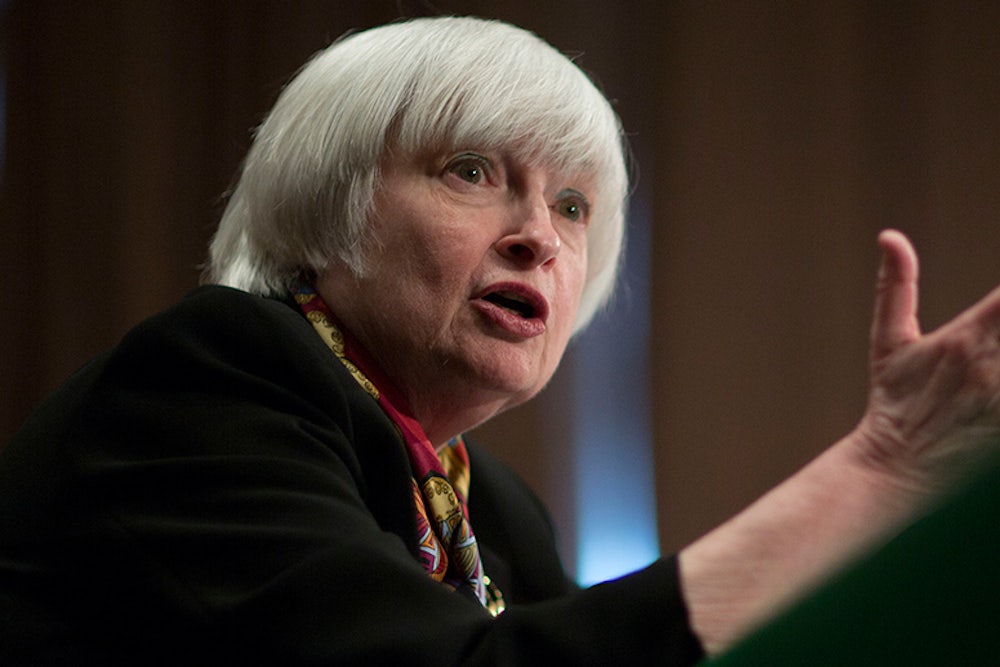Testifying before the Senate Banking Committee on Thursday, Federal Reserve Chair Janet Yellen made a statement that should scare every American who was furious at the bank bailout in 2008: We don't know whether we'll have to bail them out again.
This has been the key question for regulators since the collapse. If another financial crisis hit, would Congress find itself in the same position as it did in 2008 when it passed the Troubled Asset Relief Program and spent hundreds of billions of dollars bailing out financial institutions to prevent an even greater economic meltdown? In response, Congress has tried to end “too big to fail” so that it would never have to provide a bank bailout again. During her testimony today, Massachusetts Senator Elizabeth Warren asked Yellen how we could tell if the Congress accomplished that goal. Her response was less than inspiring.
“I'm not positive that we can declare with confidence,” she said, “that ‘too big to fail’ has ended until it's tested in some way.”
Whether “too big to fail” still exists is a contentious issue on the Hill, where the biggest banks are quick to assure regulators that they are not a threat to the entire financial system. Others are less sure. They argue that reports have shown that the biggest financial institutions can borrow at discounted rates thanks to the implicit backing of the federal government. One study found that the subsidy was worth $83 billion a year, not something the banks are eager to give up. The Government Accountability Office has also released a report saying that banks receive an implicit subsidy while Standard & Poor’s has emphatically declared that “too big to fail” still exists.
Congressmen on both sides of the aisle are worried about this as well. In his tax reform plan released yesterday, House Ways and Means Committee Chairman Dave Camp proposed a small tax on the largest financial institutions on assets greater than $500 billion. This would bring in around $10 billion a year to the federal government, but would more importantly provide an incentive for the largest banks to reduce their size. Some have argued that Camp’s plan should tax liabilities instead of assets. Others have advocated for higher capital requirements or breaking up the largest banks altogether.
No matter. Yellen will never step before the committee and declare that “too big to fail” is officially over, because she can't be sure. But she could state that she's confident that the largest financial institutions do not pose a threat to the entire financial system. Her comments Thursday indicate she's not.
